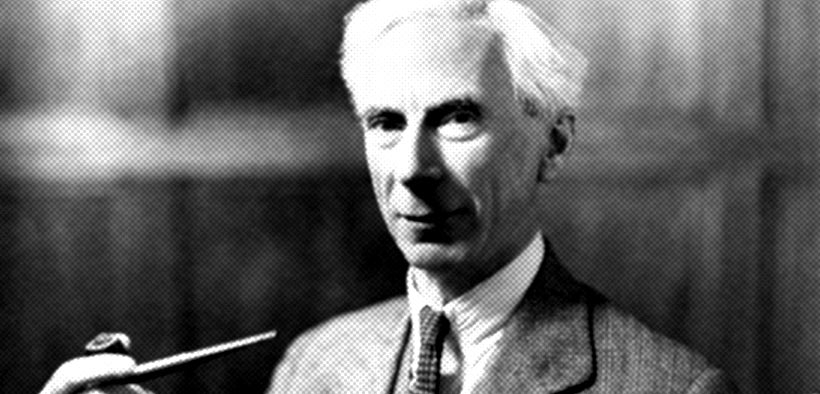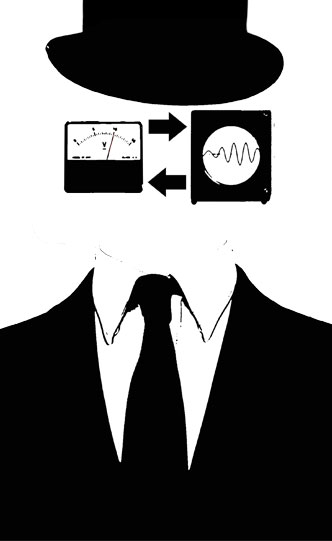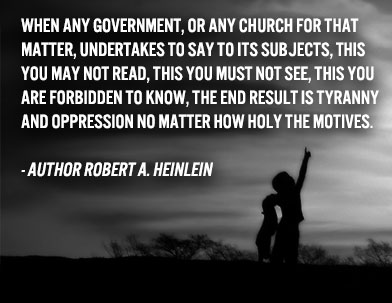Bertrand Russell: World Government Needed to ‘Prevent Human Extinction’

Threat of Catastrophic War Means World Must Submit to International Authority
Lord Bertrand Russell, author of The Impact of Science on Society (1952), noted philosopher and wealthy aristocrat, analyzes the role of science and technology in transforming society. In doing so, he makes clear what he sees as an imperative towards world government.
Russell, a Fabian socialist, member of the Royal Society and noted peacenik, threatens that without a single global government, human life could be extinguished under the threat of (nuclear) war or breakdown into uncivilized barbarism; yet without the power of an identifiable external enemy, people are psychologically adverse to unifying under such a one world system.
Ergo, advocates and architects of One World are looking for a compelling enemy to achieve global cohesion and submission to a planetary authority…
Humanity as we have known it is essentially captured by the power and scope of new developments and technology. What status do individuals have on the grand chessboard of life with weapons as powerful as atomic bombs and massive centralized empires? Very little if Russell has his say…
Excerpt from his 1952 “Impact of Science on Society,” p. 26:
“Communications have been hitherto the chief factor limiting the size of empires. In antiquity the Persians and the Romans depended upon roads, but since nothing traveled faster than a horse, empires became unmanageable when the distance from the capital to the frontier was very great. This is on the point of disappearing with the improvement of the long-range bomber. There would now be no technical difficulty about a sing world-wide Empire. Since war is likely to become more destructive of human life than it has been in recent centuries, unification under a single government is probably is probably necessary unless we are to acquiesce in either a return to barbarism or the extinction of the human race.”
“There is, it must be confessed, a psychological difficulty about a single world government. The chief source of social cohesion in the past, I repeat, has been war: the passions that inspire a feeling of unity are hate and fear. These depend upon the existence of an enemy, actual or potential. It seems to follow that a world government could only be kept in being by force, not by the spontaneous loyalty that now inspires a nation at war.” [emphasis added]
Russell crafted his public persona as a peacenik, and a leading advocate for nuclear disarmament and an end to all wars, joining with Albert Einstein and other leading scientists, – many of whom played a role in creating the first atomic bomb – in calling for mandatory nuclear disarmament contained by an international regulator.
As we see in numerous statements from this prolific author and Nobel laureate, his vision of peace is only a means to an end – the empowerment of an international authority with a monopoly on force.
On other occasions, Russell has argued for the power of the state to control reproductive rights via Eugenics, and to brainwash school children into accepting the existing order. Vociferously, he has argued that population growth should be curbed through heavy-handed measures including a global food distribution authority that would dole out rations on the basis of population, using supply as a checkmate to growth, and denying excess members of society additional rations of sustenance.
The threats of civilizations’ destruction as an encouragement towards forming a “common sense” world government is made starkly clearly in the immediate wake of the use of the atomic bomb on Japan, when the world was still in a state of complete shock.
Just days after the first atomic bomb was dropped on Hiroshima, Russell wrote an article titled, “The Bomb and Civilisation,” published August 18, 1945. He notes just learning of the subsequent bombing of Nagasaki while writing the column.
He urges in part:
“The prospect for the human race is sombre beyond all precedent. Mankind are faced with a clear-cut alternative: either we shall all perish, or we shall have to acquire some slight degree of common sense.”
[…]
“Either war or civilization must end, and if it is to be war that ends, there must be an international authority with the sole power to make the new bombs.”
[…]
“If this system were once established, the international authority would be irresistible, and wars would cease.” [emphasis added]
Russell is quite clear in expressing his desire that nationalism should be extinguished, but under his vision for an international authority, individual autonomy is also out the window.
And with it free will.
Under Russell’s world government, are we to be anything more than cogs in a horrifying machine?










